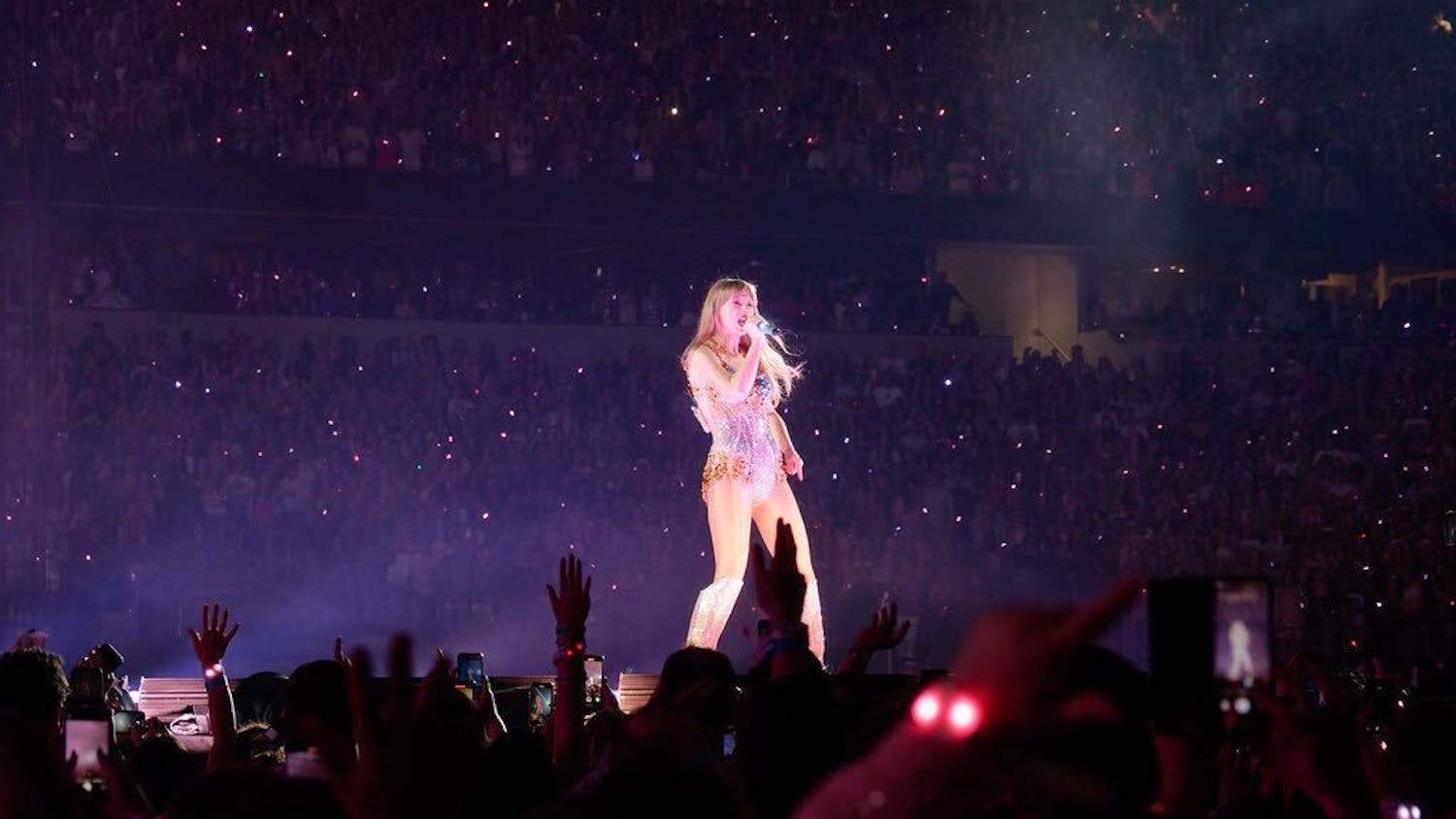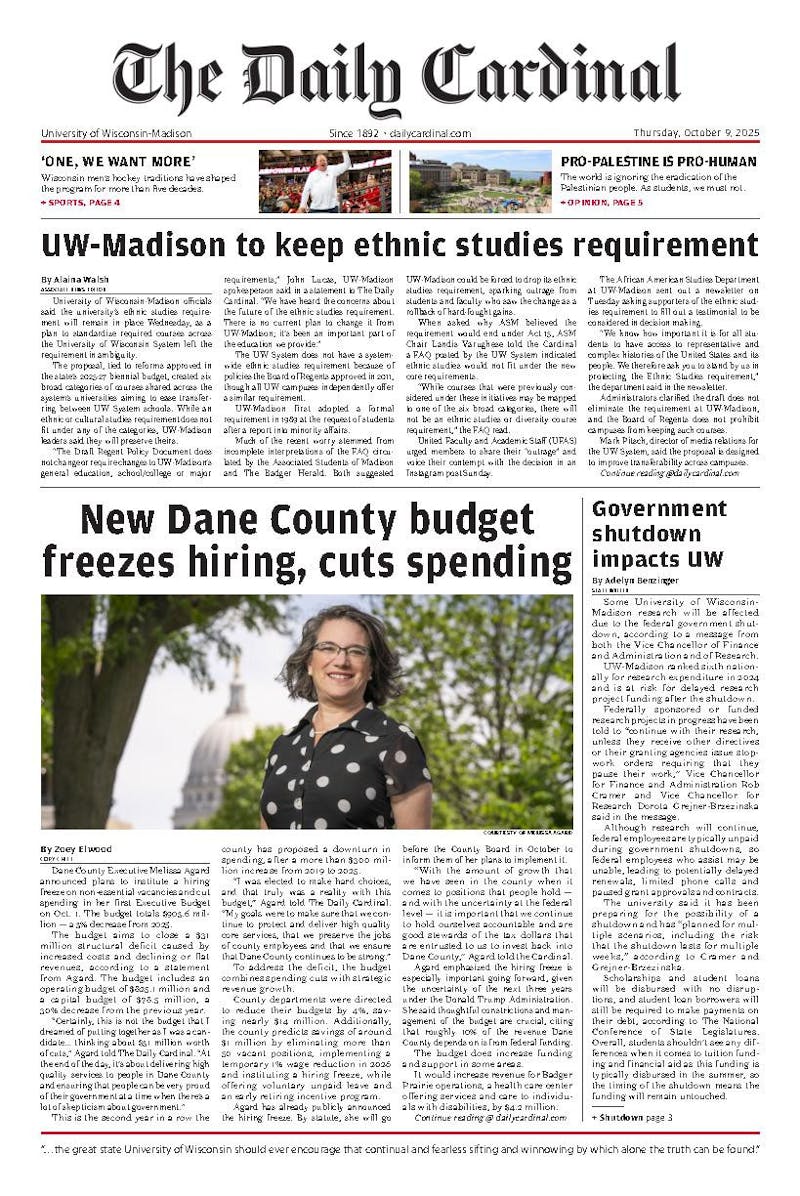For the moment, we see some connection between the beat and body. How easily it becomes repetitive to know where music will transition for quick appraisal. In small fragments, the influence of culture lies somewhere between knowing and claiming everything taken. For years, the rotation doesn’t fall far from expectation, but instead separates hip-hop and rap music and its quick assimilation into white mainstream media. I see this in the audience. A 7,000-person crowd eagerly awaits one of the most prominent media figures in music today. American record producer and record label executive DJ Khaled plays centerstage at the Kohl Center.
A short-lived set lacks focality and quickly runs through Top 40 hits with little to no effort. The disconnection is quickly drawn at the top of the night. With obvious and almost unseemingly relatable experiences, a predominantly white audience draws bizarre association with hip-hop, its language and the history it holds. The disparities exist before the bass overtakes a continued snippet of 30-second samples. DJ Khaled features multiple mixes of radio hits while simultaneously reaching an audience routinely given music for quick inspiration. In his business-like demeanor, DJ Khaled spends the entirety of his set playing music commonly found on the radio. In an oversaturated attempt at complete connection, DJ Khaled fails to live up to the hype. Throughout the show, he paused at random times to thank fans for support, and, most importantly, for supporting his one year old son, Asahd.
In a continuous loop, DJ Khaled plays an hour-long radio session with no support from any musical acts. Excitement is quickly lost as the music being played progressively reaches the deeper crevices of black culture. Classics like “Knuck If You Buck,” “Bring It Back” and “Wasted” are underappreciated and exploited for superficial consumption. If we ask how music can bring us together, how do people of color, brown and black folk, preserve some of the music that holds greater impact in culture today? When are we expected to share the pieces of our identity for relatability in western society? As we maintain the ideals and beliefs of culture, memory and relapse, we return to the foundation of understanding and relying on musical figures to alter the conversation manually.
DJ Khaled claims love in all ways as he constantly asks fans for cheers and self-validation. Ironically, he thanks the same audience for forgetting lyrics to “Bad & Boujee,” yet somehow remembering the “N” word that follows an easily avoidable chorus. A certified platinum album supersedes a humbled DJ Khaled as he thanks Asahd for helping him overcome his fear of flying. He tells fans this is his first time attempting to truly overcome his fears. In this case, he flies for the first time and shares his admiration for his son and the future success of a top-ranked university. He states near the end of his set, “This is where our dreaming begins. We got the next doctors, musicians and record producers. Love is the key.”
For obvious reasons, DJ Khaled’s underwhelming performance fails to truly bring hip-hop to Madison. A DJ set using little to no personal work production attests to a stranded level of excitement. A static and unimpressionable concert leaves much more to be expected and desired. In brief instances, the connection is lost between the beats and the culturally unreceptive bodies that line the stands and general admission floor.






